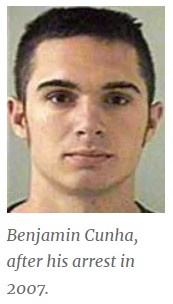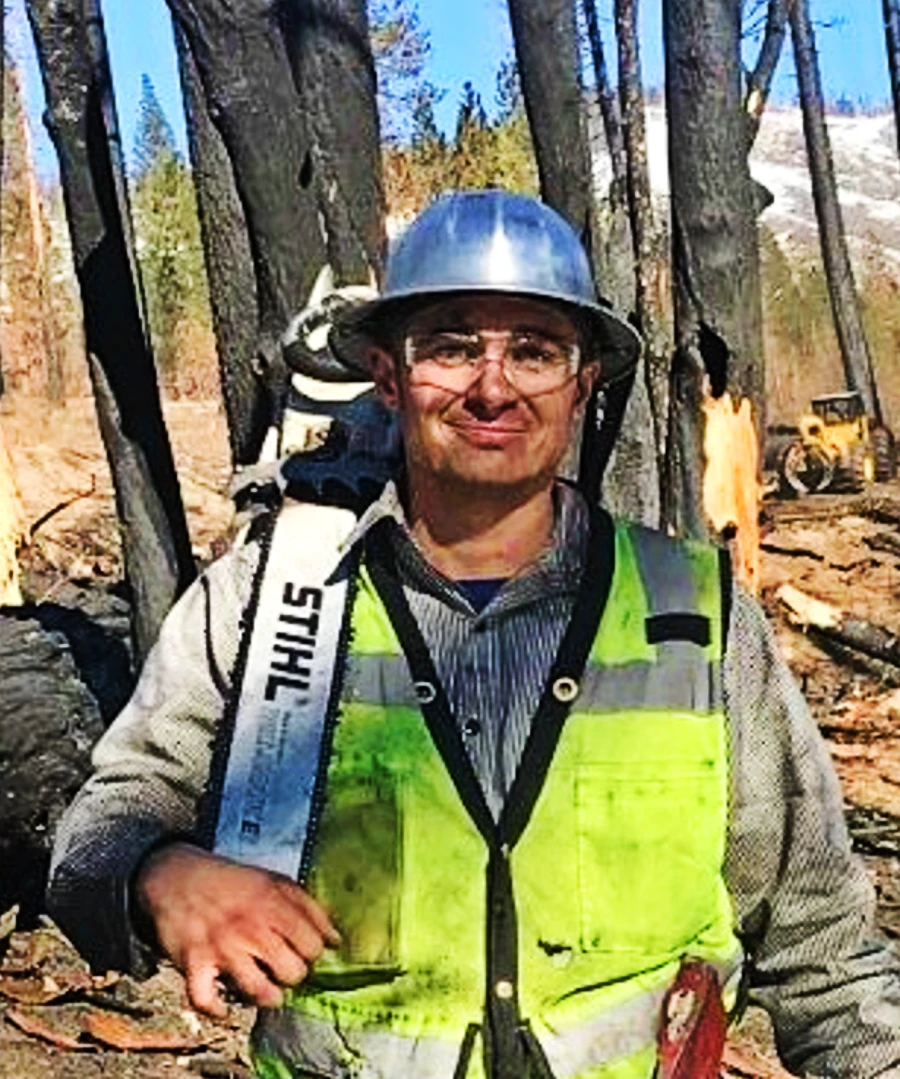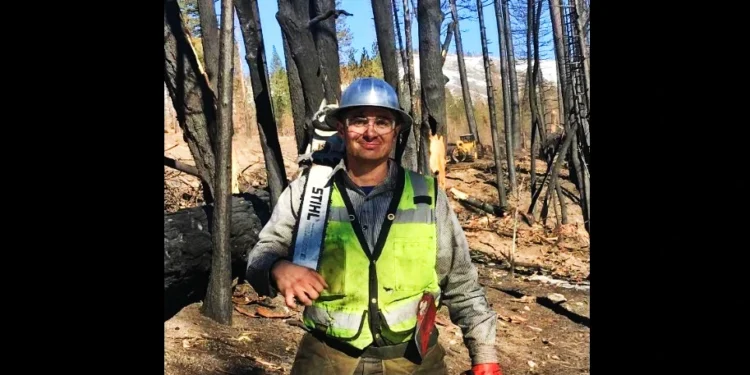“Benjamin Cunha, 41-years-old. In a joint operation on January 12th, 2024, the Federal Bureau of Investigation (FBI), the California Highway Patrol (CHP), and the El Dorado County Sheriff’s Office executed search warrants related to a series of improvised explosive devices found along roads and highways in El Dorado and Sacramento Counties. The operation involved Explosive Ordinance Disposal teams and assistance from CHP Valley Division Special Services Unit.”
Benjamin Cunha, a former Cal Fire/EDC Firefighter and Placerville resident with a criminal history of serial arson, has been arrested in connection to improvised explosive devices placed in various locations across El Dorado and Sacramento counties. The 41-year-old Orangevale resident faces charges of the unlawful explosion of a destructive device and possession of a destructive device or explosives. Cunha is currently held on a $2.1 million bail.
41-year-old Benjamin Cunha living in Orangevale was arrested in connection with the placement of these explosive devices. Cunha faces charges under California Penal Code sections 18740 PC (unlawful explosion of a destructive device), 18715(A)(1) PC (maliciously or recklessly possessing an explosive device), and 18710(a) PC (possession of a destructive device or explosives). He is currently held at the El Dorado County Jail, Cunha’s bail is set at 2.1 million dollars.

Cunha’s arrest follows his previous convictions for starting at least 30 wildland fires during the summers of 2006 and 2007. Among these fires was the Mine Fire, which scorched approximately 80 acres of land. In 2016, Cunha was sentenced to five years in prison for these offenses. At the time, he was a volunteer firefighter with the Diamond Springs Fire Protection District and had previously worked with Cal Fire.
In 2016 Federal Prosecutors Urged for a 7-year 6-month [60-month] Sentence for Serial Arsonist Benjamin Cunha, a former firefighter who admitted to starting a series of fires in El Dorado and Amador counties. Cunha’s history as a serial arsonist, coupled with the potential danger he poses to the community, formed the basis of the prosecution’s argument against a lower 60-month sentence proposed by the Probation and Pretrial Services.
Cunha, aged-33 at the time, previously worked for the California Department of Forestry and Fire Protection (CAL FIRE) and volunteered for the Diamond Springs Fire Protection District. In 2008, he was sentenced to 365 days in jail and 72 months of probation for the initial arson charges. However, in July and August 2013, authorities investigated new suspected arson fires in the El Dorado/Amador area, leading to Cunha being charged for the 2007 Mine Fire. Benjamin Cunha, a former firefighter with a history of arson, was sentenced to five years in prison for wildland fire arson. This marked Cunha’s second sentencing, following his admission to starting at least 30 fires between August 2005 and September 2007 in the El Dorado/Amador area. The recent sentencing is linked to the Mine Fire, one of the fires that burned onto federal land during the mentioned period.
Between August 2005 and September 2007, a string of fires prompted a Cal Fire investigation in El Dorado and Amador counties. Cunha, a local firefighter, confessed to igniting the fires to earn overtime and impress his peers. After his 2008 guilty plea on state charges, Cunha cooperated with local law enforcement, revealing details of at least 30 fires he admitted to starting.
Cunha faces federal charges under 18 U.S.C. § 844(f)(1), with each count carrying a mandatory minimum sentence of 5 years. In a plea agreement, Cunha bargained for a mid-range sentence of 7.5 years, and the government agreed to dismiss one count. However, Cunha’s failure to provide substantial assistance led the government to recommend a 90-month sentence.
The prosecution contends that a 60-month sentence, the statutory minimum, is inadequate considering Cunha’s history as a serial arsonist. Cunha, a repeat offender who developed a time-delay incendiary device as a firefighter, admitted to setting fires to impress colleagues and accrue overtime. The prosecution emphasizes the need to protect the community, promote respect for the law, and provide just punishment.
Highlighting the severity of wildland arson, the prosecution argues that Cunha’s actions pose a continued danger to the community. The potential for fires to spread easily, even in remote areas, underscores the need for a substantial sentence. Comparisons to similar cases, where defendants received above-guideline sentences, support the argument for a 90-month term.
The prosecution underscores Cunha’s background as a trained firefighter, emphasizing that setting 30 wildland arson fires demonstrates a level of hubris that necessitates a punitive sentence. Cunha’s knowledge and family ties to firefighting make his actions more egregious, warranting a sentence that upholds respect for the law.
Federal prosecutors assert that a 60-month minimum sentence would not align with the plea agreement’s terms, where Cunha traded the exposure of a 10-year sentence for a mid-range 7.5 years. They argue that the 90-month sentence proposed is fair, necessary, and just, given the nature of Cunha’s offenses.
 Cunha’s modus operandi involved using a distinctive time-delay incendiary device, which he admitted to employing in many of his fires. His motivations for setting the fires included overcoming boredom, earning overtime pay for firefighting, and impressing his peers. Despite being a volunteer firefighter, Cunha could have been eligible for payment during busy periods. In 2016 Benjamin Cunha was linked to Explosive Devices. Mr. Cunha confessed he used a distinctive time-delay incendiary device, which he had also used to start many of his other fires.
Cunha’s modus operandi involved using a distinctive time-delay incendiary device, which he admitted to employing in many of his fires. His motivations for setting the fires included overcoming boredom, earning overtime pay for firefighting, and impressing his peers. Despite being a volunteer firefighter, Cunha could have been eligible for payment during busy periods. In 2016 Benjamin Cunha was linked to Explosive Devices. Mr. Cunha confessed he used a distinctive time-delay incendiary device, which he had also used to start many of his other fires.
Bomb-Maker Signatures: Bomb-makers often leave signatures, intentional or unintentional, in their devices. This signature could be a unique construction method or choice of materials. Databases containing information on these signatures assist investigators in linking a device to known bomb-makers.







